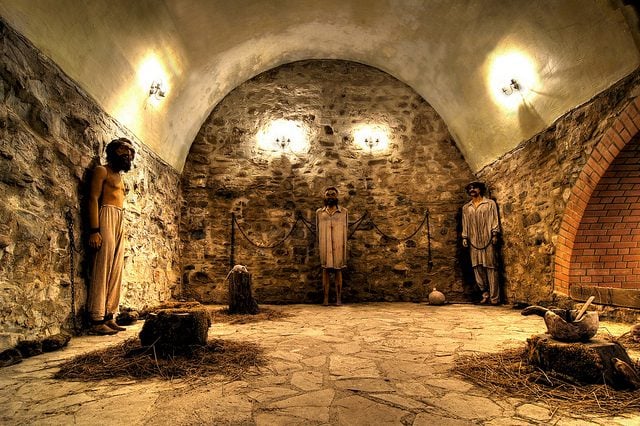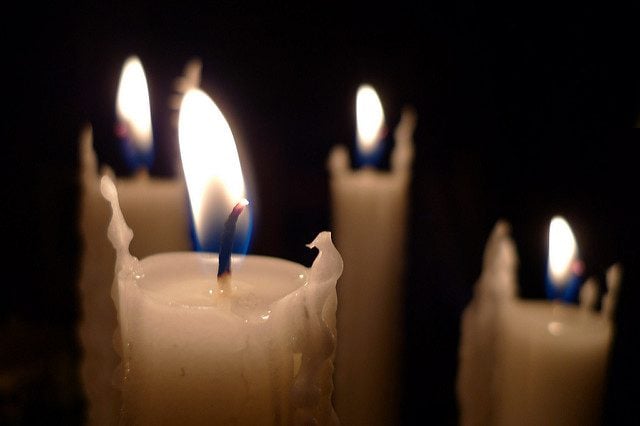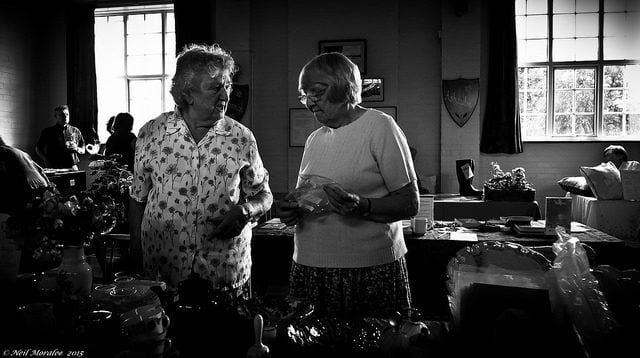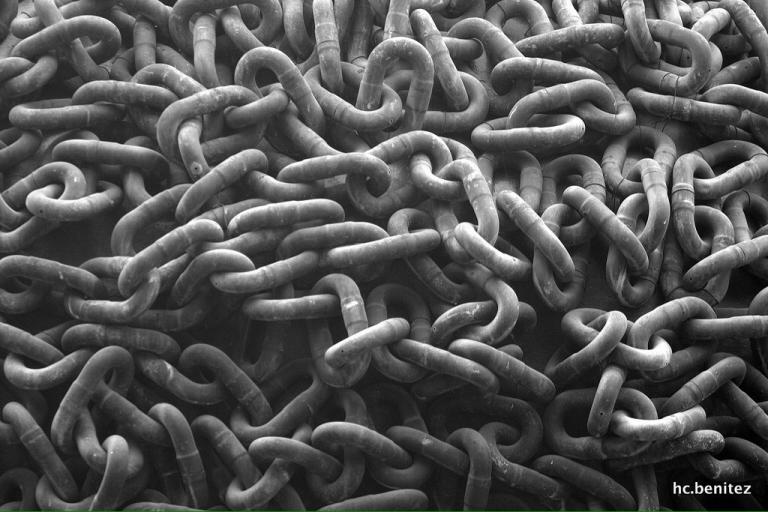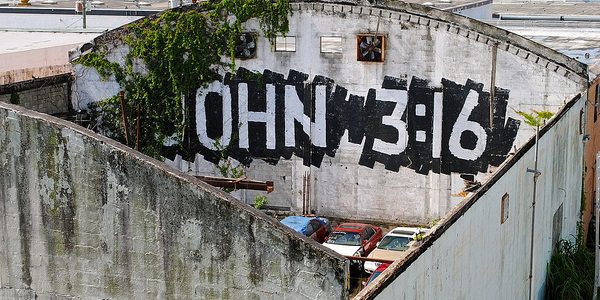
Lent 4B + John 3:14-21
Note: An earlier version of this opened with a story about my son. I had his permission to use it, but as he heard me practicing the sermon, he said he felt embarrassed. In order to respect his privacy, I changed the sermon and used a similar story from my own childhood. Also, this version represents a more pastoral sermon for my ministerial context.
When I was about five years old, my mother surprised my brother and I after school by taking us out for donuts.
Clearly it was our lucky day, because when we opened the box of donuts, there, like the holy grail of desserts, was something so amazing, so unlike anything we’d ever seen that we could hardly believe our eyes.
Amid the ordinary dozen of glazed was the extraordinary, a donut with the donut hole still stuck in the middle of it.
It was like a dream come true, that tiny ball of dough inexplicably and miraculously wedged in the middle of the donut. For a five year old, it was like getting to eat dessert twice!
My older brother, quicker on his feet than I was, was the first to lay claim to it. He called it, and, by the rules of our family, that meant it was his. There was no arguing and I stewed with jealousy.
On the way home, with the donuts in the back seat with me and my mother and brother chatting in the front, I opened the box.
And ate the donut and donut hole as quickly and as quietly as I could without anyone knowing.
That is, until we got home and my brother opened the box.
He was furious.
Shocked, my mother asked me, “David, did you eat your brother’s donut?”
I looked her right in the face, flecks of glaze still on my cheeks, and said, “No, ma’am. I have no idea what happened to that donut.”
Now at this point, my mother had choice to make. She knew I had eaten that donut. I mean, there were only three people in the car.
What was she really after in this situation?
Did she want to punish me or did she want to find some way to foster reconciliation between my brother and I?
Was she after healing or condemnation?
Was she upset with me? Certainly, but in order for reconciliation to happen, she knew I needed to come into the light so to speak. I needed to admit what I had done was wrong. But there was no way I was going to admit to it. Because I knew if I confessed it mean some kind of punishment wouldn’t be far behind.
But my mother did something I didn’t expect that day. She didn’t chose to take away my freedom or my toys in punishment.
Instead, she chose to take away my fear.
She told me there wouldn’t be a punishment for what I had done, but that, hard as it may be, I had to tell the truth.
After a few moments, I owned up to my deeds and apologized. Then we began to figure out how I could restore the relationship with my brother. Looking back, it dawns on me that the threat of punishment had never really taught me to follow our house rules.
Instead, it taught me to fear them.
And it taught me, that when I messed up or broke a rule, to hide it in darkness where I thought no one would see, to deny things even if the truth were obvious.
In a way, this is the context in which we find ourselves today in our gospel story with a person who needs to come out of the darkness and into the light to tell the truth about himself.
Now, it may come as a surprise to hear, but the original context of John 3:16 was not the eyeblack of football player Tim Tebow or the bright lights of a football stadium. Rather, it was in the darkness, in a secret midnight rendezvous between Jesus and a powerful religious leader named Nicodemus.
Nicodemus dared not go to Jesus in broad daylight so he came under the cover of darkness to ask Jesus about his teachings. Nicodemus strikes me as a person who is on the cusp of taking a chance on this radical Galilean rabbi but who is also scared of what it might mean for him, his position in power, and his future.
In short, just as I was after I ate that donut, Nicodemus is worried about the consequences of telling the truth about himself and coming into the light.
To explain himself and his ministry, Jesus offers a rather philosophical explanation about being born again that only confuses Nicodemus. So, Jesus goes on to explain that God loves the world so much he sent his only son, and that son is sent not to condemn the world, but to save, to heal, and to love it.
In other words, Jesus says, if you want to understand me, one of the first things you have to grasp is that condemnation is not in God’s nature. That’s our nature, our human nature, to judge and to exclude. But, the Son came to heal, not to condemn.
But that raises all kinds of red flags for religious rule followers like me. If Jesus doesn’t come to condemn, what then of the consequences of evil deeds? That’s when Jesus he says something rather startling, and it’s a shame we’ve gotten caught up in John 3:16 for so long when the true bombshell comes in the verses following it.
Jesus explains that the punishment, the condemnation for not believing in Jesus is simply remaining in the darkness.
That’s it. We’re talking about eternal life and whether you believe in the Son of God. Where are the visions of hell or eternal fire? Where are the nightmarish warnings of endless torture and pain? Jesus here simply says that the condemnation that comes from not trusting God is simply that we will continue not trusting God, continue to live in the darkness of alienation from God and our neighbor. The crime, if we can call it that, is its own punishment.
So, the judgment against someone like Nicodemus, who only comes in the 2 a.m. darkness worried that someone might see him and find out who he really is, would simply be keep living that life of shadows, fear, and darkness. It would be remaining right where he is and never experiencing the transforming love of God.
Throughout the gospel of John, the darkness is characterized this way, primarily as a place of alienation, blindness, and secrecy. When we live in this kind of darkness, we are living condemned already, forced to live a life hidden even from ourselves. In this place, we believe that the truth about who we are, our very worth as humans rests in our own deeds. It’s a hell of our own making, a place we chose to exist separated from God and others, alienated because we can never be honest.
Because in this kind of darkness, then, we must be perfect. And we believe if we are to be loved, we must hide the very imperfections, mistakes, and anomalies that mark us as human.
But the light to which God calls us to enter is different. It is a place of authenticity, not perfection. In the light, we are no longer judged and condemned because our identity is formed in God’s love for us rather than through our own merits.
The light, though, is not always an easy place to be, because in the light everything is revealed. We can’t hide any more. Not from each other. Not from God. Not even from ourselves. And that can be a painful experience. We must come face to face with ourselves and look clearly at that which poisons and wounds us in order to find healing. Just as Moses lifted up the serpents that poisoned and harmed the Israelites in the wilderness, we too are called to face what is wounding us and how our actions wound others, lifting them up and bringing them into the light so that God can begin to heal us and our communities.
In other words, we tell the truth about ourselves.
We tell our secrets.
We confess.
But sometimes we are so full of shame and fear, like I suspect Nicodemus was, like I was after I’d eaten that donut, that we don’t really trust – ourselves, each other, and even God – enough to come into the light.
We fear being revealed for who we are. So surrounded by the judgment of our own and the world’s making, we find it hard to believe that what waits for us in the light is love and acceptance not condemnation and punishment.
But how can we trust God’s love enough to come into the light, to reveal ourselves for who we are, with all our faults, and desperate attempts to be loved, with all our scars, wounds, and hopelessness?
Because God so loved the world that God gave us his only Son.
Because God didn’t demand that we become like him before loving us. Instead, God became like us, mortal, human, scarred and wounded by the brutality and judgment of the world.
And perhaps upon realizing that God, too, was mortally wounded by the condemnation of the world, we can at last begin to believe in the light, in the truth that God is not in the business of condemnation, but in the work of healing and saving us all.
That, at least, is where Nicodemus ends up. It isn’t until the crucifixion that he finally leaves behind the secret, clandestine meetings, his life of self-imposed darkness. He goes public as a follower of Jesus there at the foot of the cross, when the 12 disciples had scattered into the darkness in fear. He collects Jesus’ crucified body and buries it in the tomb.
He comes into the light on the darkest of days.
I think maybe, as he held the cold, lifeless body of Jesus, he finally understood what the teacher had meant that night when he had said that God so loved the world.
He understood that Son would rather die than to condemn the world.


